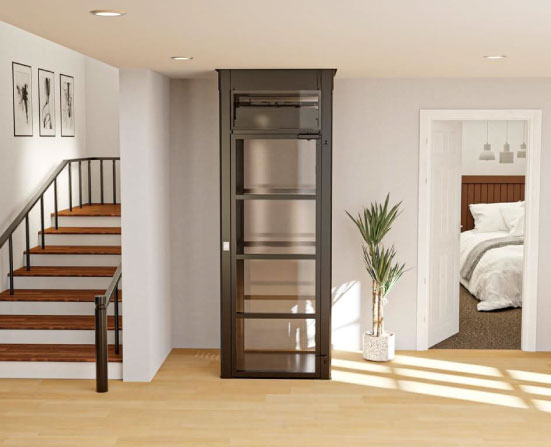Elevator installation is a significant investment for both residential and commercial properties. In Houston, a city known for its sprawling developments and growing infrastructure, elevators are becoming an increasingly popular choice for homeowners and business owners alike. Whether you’re considering adding an elevator to improve accessibility in your home, increase property value, or meet the needs of a growing business, understanding the complete process of elevator installation is essential.
In this comprehensive guide, we’ll cover everything from the benefits of installing an elevator to the steps involved in the installation process, along with key considerations specific to Houston.
1. Benefits of Installing an Elevator in Houston
For Homes:
- Improved Accessibility: Elevators make multi-level homes accessible to people with mobility issues, the elderly, or those recovering from an injury.
- Increased Property Value: Home elevators are seen as a luxury addition and can increase the resale value of a property.
- Convenience: Elevators make it easier to carry groceries, furniture, and other heavy items between floors.
- Space Efficiency: Modern home elevators are compact and can be integrated into small spaces, often blending with your home’s décor.
For Businesses:
- Compliance with ADA Standards: Elevators are a critical part of making commercial spaces accessible to all, ensuring compliance with the Americans with Disabilities Act (ADA).
- Enhanced Customer Experience: Providing an elevator for clients, customers, or employees makes navigating a multi-story building more convenient and accessible.
- Improved Efficiency: Elevators speed up movement between floors, especially in large commercial spaces like hotels, office buildings, and malls.
- Increased Property Value: Elevators add to the attractiveness of a commercial property, particularly in high-traffic areas.
2. Types of Elevators for Residential and Commercial Properties
Residential Elevators:
- Hydraulic Elevators: These elevators use a hydraulic piston to lift the car and are known for their smooth operation. They are ideal for homes with more space and a need for higher lifting capacity.
- Traction Elevators: Powered by a counterweight and pulley system, these elevators are quieter and more energy-efficient than hydraulic systems. They are more common in larger homes or when you need a higher lifting range.
- Pneumatic Vacuum Elevators: These are newer technologies that rely on air pressure to move the car. They are space-efficient, require no pit or machine room, and are easy to install in homes.
- Shaftless Elevators: A great option for homes that don’t have space for a traditional elevator shaft, shaftless elevators are often installed in existing homes and require minimal structural modifications.
Commercial Elevators:
- Passenger Elevators: These are the most common type for public buildings, hotels, and office spaces. They are designed to transport people between floors efficiently.
- Freight Elevators: Designed to carry large amounts of cargo, these elevators are built to handle heavier loads than standard passenger elevators. They’re found in warehouses, factories, and large retail spaces.
- Service Elevators: Used for moving goods or staff between floors without disrupting passenger traffic, service elevators are common in restaurants, hospitals, and multi-story commercial buildings.
- Dumbwaiters: These small freight elevators are used in restaurants, libraries, or homes to carry small items like food or books between floors.
3. Factors to Consider for Elevator Installation in Houston
1. Space and Design Constraints
The amount of space available in your home or business will dictate the type of elevator you can install. For instance, hydraulic elevators require more space for their mechanical components, while pneumatic elevators take up less room and don’t require a machine room. You’ll need to work with an experienced contractor to design the elevator system that fits your space, aesthetic, and functional needs.
2. Building Codes and Permits
Houston has specific building codes and regulations that govern elevator installations, particularly in terms of safety, accessibility, and structural requirements. For residential properties, the Houston Building Code and National Fire Protection Association (NFPA) standards apply. Commercial elevators must comply with stricter regulations set by the Americans with Disabilities Act (ADA) and the local Houston Fire Code. Your installation contractor should handle all the necessary permits and inspections.
3. Cost of Installation
The cost of elevator installation in Houston varies depending on the type of elevator, the complexity of the installation, and any custom features. On average, residential elevators can cost anywhere from $20,000 to $50,000, while commercial elevator installation can range from $50,000 to $150,000, or more, depending on size and specifications. It’s important to get a detailed quote from a reputable company and account for ongoing maintenance and potential future repairs.
4. Maintenance and Warranty
Once installed, elevators require regular maintenance to keep them operating safely and efficiently. In Houston’s humid climate, components like cables, pistons, and motors can degrade over time due to moisture. Be sure to schedule annual inspections and maintenance checks. Choose a provider that offers ongoing support and warranties to minimize unexpected repair costs.
4. Elevator Installation Process in Houston
Step 1: Initial Consultation and Design
The first step is to meet with an elevator installation expert who will assess your property and discuss your specific needs. For residential installations, they’ll help you determine the best location for the elevator and recommend the right type of system. For commercial installations, they’ll conduct a site survey to ensure that the elevator meets the requirements of your business operations and complies with local codes.
Step 2: Permitting and Approvals
Once the design is finalized, your contractor will file for permits with the City of Houston and submit plans for approval. This process can take a few weeks, as various city departments review your plans for safety and compliance with building codes.
Step 3: Installation
During the installation phase, contractors will begin the actual construction of the elevator shaft, machine room, or pit. The timeline for installation can vary depending on the complexity of the project. For residential installations, it typically takes 2-6 weeks, while commercial projects may take several months.
Step 4: Final Inspection and Testing
Once the elevator has been installed, it will undergo thorough testing to ensure it is operating smoothly and safely. A final inspection from the City of Houston is required before the elevator can be used. This ensures that it meets all local building codes, safety standards, and accessibility requirements.
5. Choosing the Right Elevator Installation Company in Houston
When selecting an elevator installation company in Houston, it’s crucial to do your research. Look for a provider with:
- Experience: Choose a company with a proven track record of installing both residential and commercial elevators.
- Licensing and Insurance: Ensure the company is properly licensed and insured in the state of Texas.
- Customer Reviews and References: Read reviews and ask for references to get feedback on the quality of their work.
- Comprehensive Support: The right company will offer post-installation support, including ongoing maintenance and repairs.
Elevator installation is a smart investment for both homes and businesses in Houston, providing increased accessibility, convenience, and even boosting property value. With proper planning, adherence to building codes, and selecting the right contractor, you can enjoy the benefits of an elevator system that meets your needs for years to come. Whether you’re enhancing a luxury home or outfitting a multi-story commercial building, taking the time to understand the process ensures a smooth installation and long-term satisfaction.
Ready to enhance your home with an elevator? Contact us.






Leave A Comment